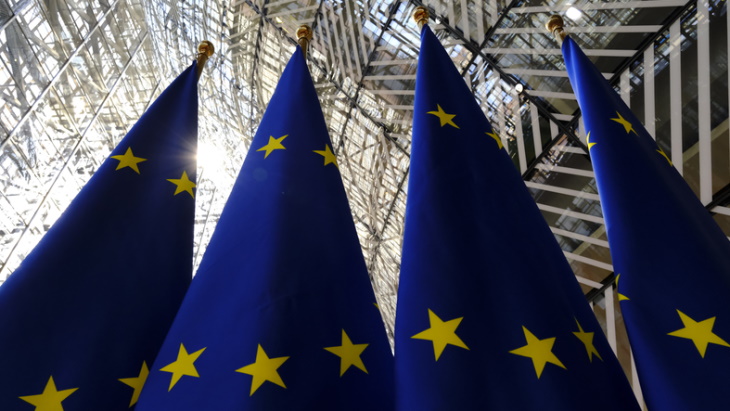Agreement reached on EU electricity market reform
The European Council and Parliament have reached a provisional agreement to reform the European Union's electricity market design. The agreement now needs to be endorsed and formally adopted by both institutions.

(Image: European Union)
The European Council said the reform aims to "make electricity prices less dependent on volatile fossil fuel prices, shield consumers from price spikes, accelerate the deployment of renewable energies and improve consumer protection". The proposal is part of a wider reform of the European Union (EU) electricity market design which also includes a regulation focused on improving the EU's protection against market manipulation through better monitoring and transparency.
The European Commission adopted the proposals on the reform of the EU's electricity market design on 14 March. However, a dispute between France and Germany over the role of nuclear power in European climate action has dominated negotiations for months.
The European Council reached an agreement in October on a proposal to amend the EU's electricity market design, agreeing to include existing nuclear plants in the reform.
Among the measures agreed, both co-legislators agreed to make two-way contracts for difference (CfDs) or equivalent schemes with the same effects as the model used when public funding in the form of direct price support schemes are involved in long term contracts.
Two-way CfDs would apply to investments in new power-generating facilities based on wind energy, solar energy, geothermal energy, hydropower without reservoir and nuclear energy.
"The rules for two-way CfDs will only apply after a transition period of three years after the entry into force of the regulation, in order to maintain legal certainty for ongoing projects," the Council said.
"This deal is great news, as it will help us reduce even more the EU's dependence on Russian gas and boost fossil-free energy to cut greenhouse gas emissions," said Teresa Ribera, Spanish Third Vice-President of the Government and Minister for the Ecological Transition and the Demographic Challenge. "Thanks to this agreement, we will be able to stabilise long-term markets, speed up the deployment of renewable and fossil-free energy sources, offer more affordable electricity to the EU's citizens and enhance industrial competitiveness."
Researched and written by World Nuclear News
- China Institute of Atomic Energy
- Nuclear Power Institute of China
- Southwestern Institute of Physics
- China Nuclear Power Operation Technology Corporation, Ltd.
- China Nuclear Power Engineering Co., Ltd.
- China Institute for Radiation Protection
- Beijing Research Institute of Uranium Geology (BRIUG)
- China Institute of Nuclear Industry Strategy (CINIS)
- China Nuclear Mining Science and Technology Corporation


